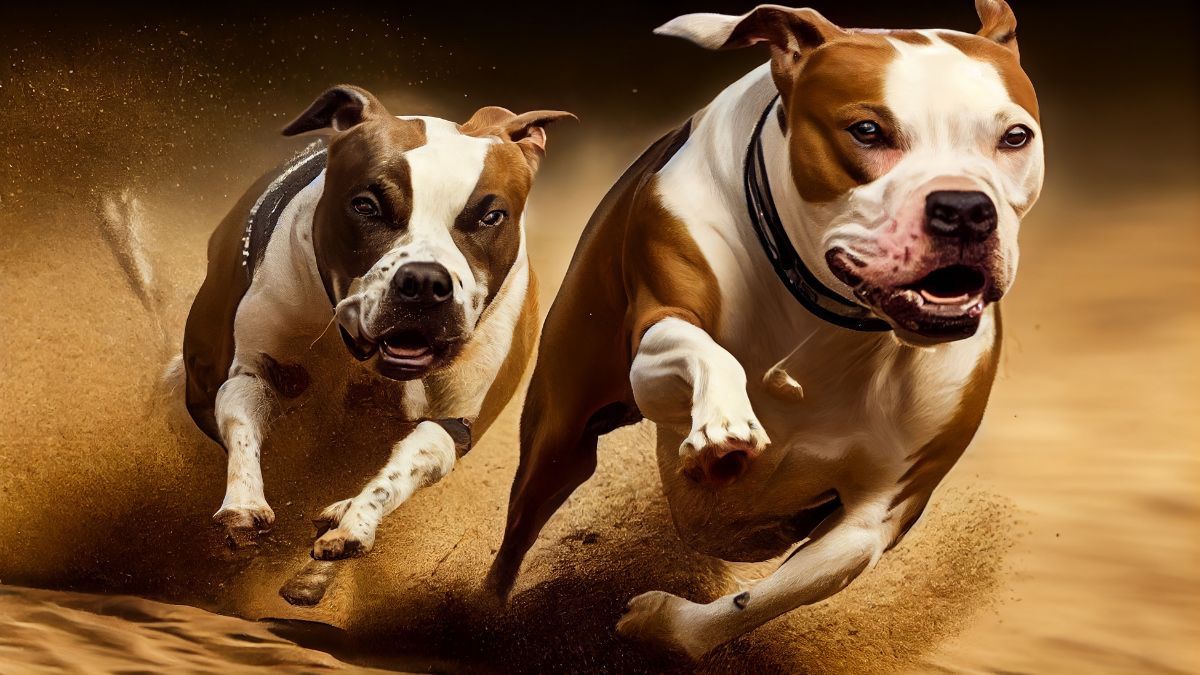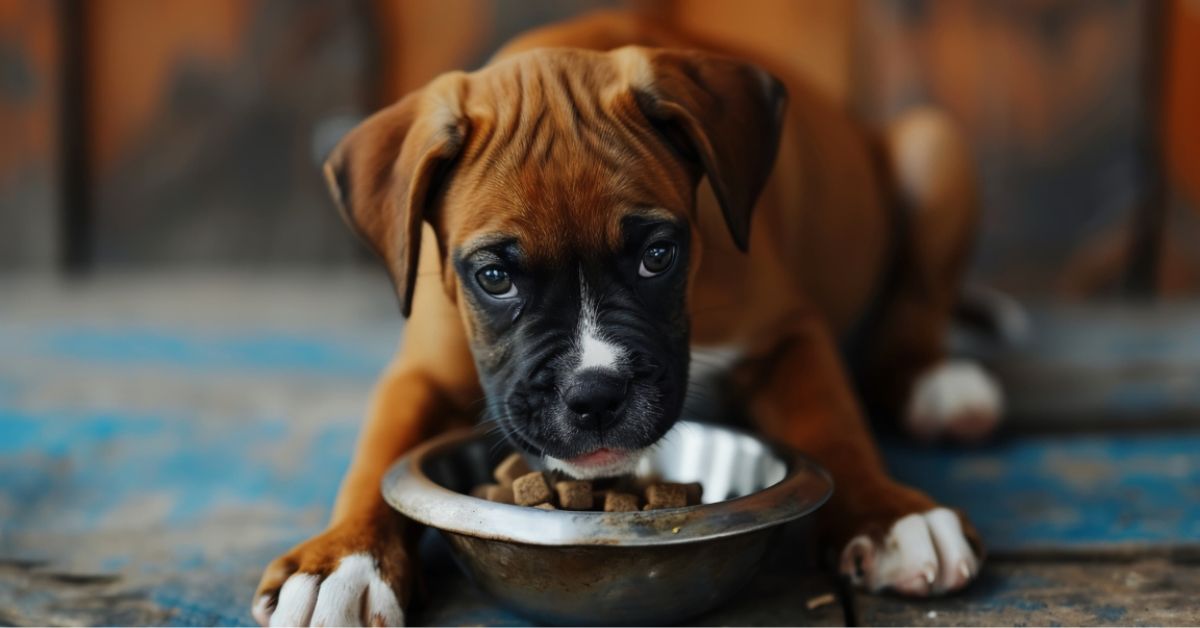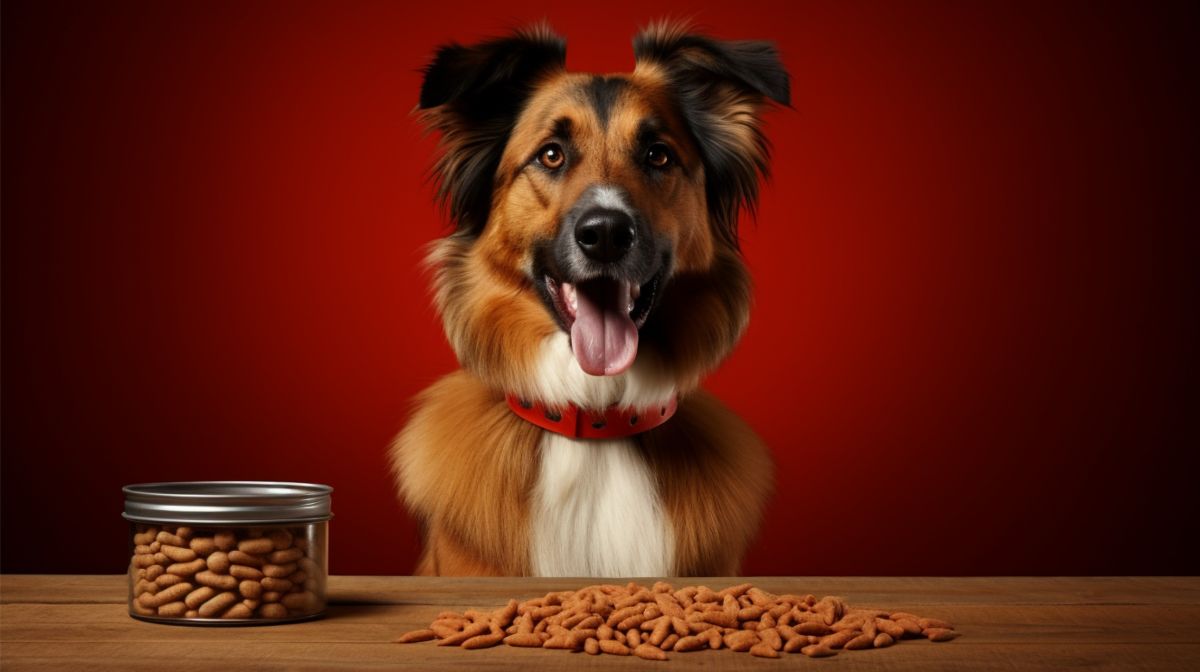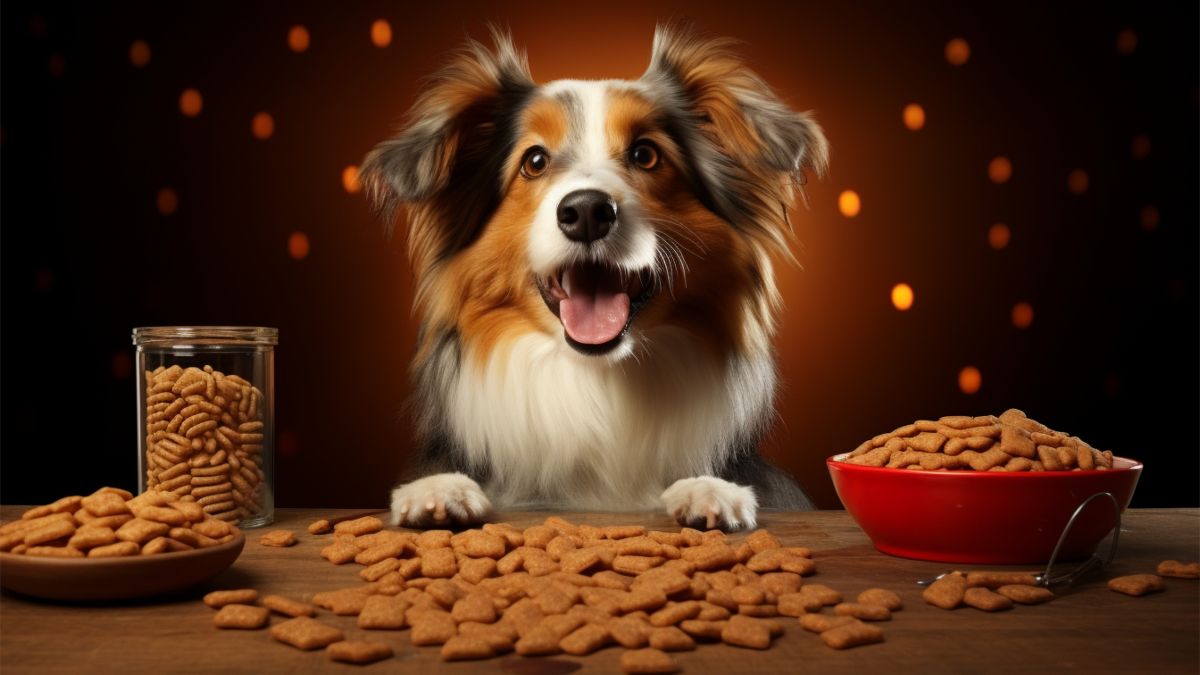The utmost relation with what is the best dog food for pitbulls? It is the question of the health and wellbeing of a Pitbull. It mostly depends on selecting the best food for your puppies. With the passes of flood like options it has been stronger.
Selecting the best food for your Pitbull is essential for their health and happiness. Pitbulls is known for their strength and vitality. It requires a well-rounded diet to flourish. The abundance of options available in the market that can make the decision seem daunting.
In this guide, we will delve into the key qualities to find in Pitbull food and provide other questions and details with referred to these questions. Here you will find the complete notion and gratification with your queries.

Understanding the Nutritional Needs of Pitbulls
Pitbulls are energetic and strong dogs that are known for their loyalty and athleticism like any other breed, they require proper nutrition to maintain their health and vitality. Here are some consideration to understand about the nutritional needs of Pitbulls:
First, High-Quality Protein: Pitbulls need a rich diet with high-quality protein. It helps to support their muscle development and overall health. Look for protein sources like chicken, beef or fish in their food.
Next, Balanced Diet: A balanced diet is crucial for Pitbulls. It helps to ensure that they receive adequate nutrients such as vitamins, minerals and essential fatty acids. Choose dog food that is formulated specifically for their breed and size.
Further, Caloric Intake: Pitbulls are active dogs with high energy levels. So, they require sufficient calories to fuel their daily activities. Monitor their weight and adjust their food accordingly to maintain a healthy body condition.
Then, Hydration: Like all dogs, Pitbulls need access to clean and fresh water. Proper hydration is essential for digestion, circulation and temperature regulation.
Moreover, Joint Health: Pitbulls are inclined to joint issues like hip dysplasia. So, incorporating supplements like glucosamine and chondroitin in their diet support their joint health and mobility.
Again, Avoid Overfeeding: Pitbulls have a tendency to overeat which lead to obesity and health related problems. Follow the feeding guidelines and avoid free-feeding. It helps to prevent overconsumption.
Last but not least, Consultation with a Veterinarian: Each Pitbull is unique and their nutritional needs vary based on different factors. Those can be like age, activity level and health status. Consult with a veterinarian to develop a diet plan for your Pitbull’s specific requirements.
Factors to Consider When Choosing Dog Food for Pitbulls
Selecting the right food for your Pitbull is crucial. It is also important for their health and well-being. Pitbulls are energetic and muscular dogs that require a balanced diet. It helps to support their active lifestyle. Here are some key factors to keep in mind in case of choosing dog food for Pitbulls.
Nutritional Needs
Pitbulls need a rich diet with protein. It helps to maintain their muscle mass and energy levels. Look for dog foods with high-quality animal protein sources like chicken, beef, or fish.
Balanced Diet
Try to ensure that the dog food provides a balanced mix of protein, carbohydrates, fats, vitamins and minerals. Balanced nutrition is essential for Pitbulls to thrive and stay healthy.
Avoid Fillers
Avoid dog foods with excessive fillers like corn, wheat, and soy. These ingredients provide little nutritional value and cause digestive issues in Pitbulls.
Size-Specific Formulas
Consider size-specific formulas that are tailored to large breeds like Pitbulls. These formulas contain the right balance of nutrients. It helps to support their growth and development.
Allergies and Sensitivities
Pay attention to any allergies or sensitivities of your Pitbull. Choose dog food that is free from common allergens. If your dog has sensitivities, those can be grains or certain proteins
Consult with a Vet
Consult with your veterinarian to determine the specific nutritional needs of your Pitbull. They can provide personalized recommendations based on your dog’s age, weight, activity level and any health concerns.
Read Labels
Carefully read and understand the labels on dog food packaging. Look for terms like complete and balanced. It helps to ensure the food meets the nutritional standards set by organizations like the Association of American Feed Control Officials (AAFCO).
Types of Dog Food Suitable for Pitbulls
Pitbulls are energetic and muscular dogs that require a balanced diet to support their active lifestyle. It also maintains optimal health. Choosing the right type of dog food for your Pitbull is essential. It helps to ensure that they get the nutrition they need. Here are some types of dog food suitable for Pitbulls:
First, High-Protein Dry Food. Pitbulls thrive on diets that are rich in protein. It helps to support their muscle mass and energy levels. Look for dry dog foods with high protein content. You can also find ideally sourced from quality meat sources. Those can be like chicken, beef or fish.
Second, Raw Food Diet. Try to find a raw food diet for a small pitbull. Focus on consisting of raw meat, bones, fruits and vegetables. This diet mimics what dogs eat in the wild and provides essential nutrients and enzymes.
Then, Grain-Free Formulas. Pitbulls benefit from grain-free dog food. It is especially applied if they have allergies or sensitivities to grains. Those can be like wheat or corn. Grain-free formulas use alternative carbohydrate sources such as sweet potatoes or peas.
Next, Limited Ingredient Diets. For Pitbulls with food sensitivities or allergies, limited ingredient diets are beneficial. These formulas contain a minimal number of ingredients. it is easy to identify and eliminate potential allergens.
Further, Weight Management Formulas.Maintaining a healthy weight is crucial for Pitbulls. It helps to prevent obesity-related health issues. Weight management dog foods are formulated with fewer calories and added ingredients. It helps to support weight loss or maintenance.
In addition, Homemade Meals. Some Pitbull owners prefer preparing homemade meals to have better control over ingredients and quality. Homemade diets should be carefully balanced to ensure that they meet all of the dog’s nutritional requirements.
Finally, Breed-Specific Formulas. Several dog food brands provide breed-specific formulas that are tailored to the nutritional needs of Pitbulls. These formulas contain ingredients targeted for supporting muscle health, joint function and overall vitality.
What is the healthiest dog food for pitbulls?
Choosing the healthiest dog food for your pitbull is crucial. It is more crucial for their overall well-being. Pitbulls are energetic and muscular dogs. they require a balanced diet to support their active lifestyle and maintain optimal health. Here are some points to consider in terms of selecting the best food for your pitbull.
High-Quality Protein: Look for dog foods with real meat as the primary ingredient. Protein is essential for pitbulls. It helps to build and repair muscle tissue.
Balanced Nutrition: try to ensure that the dog food provides a balanced blend of protein, carbohydrates, fats, vitamins and minerals. It helps to meet your pitbull’s nutritional needs.
No Fillers or By-Products: try to avoid dog foods that contain fillers like corn, soy, and wheat. Try to avoid by-products which provide little nutritional value and cause digestive issues.
Omega-3 Fatty Acids: Choose dog foods that are rich in omega-3 fatty acids. Those can be things such as fish oil or flaxseed. Those help to support your pitbull’s skin, coat and overall immune system.
Limited Grains: carbohydrates are necessary for energy, try to find dog foods with limited grain content. It helps to prevent potential allergies or sensitivities.
Consult Your Veterinarian: Every pitbull is unique, so consult with your veterinarian to determine any specific dietary requirements or health concerns.
Monitor Your Pitbull’s Health: Pay attention to your pitbull’s energy levels, coat condition and overall health in case of introducing new food. Adjust their diet as needed. It helps to maintain their optimal weight and well-being.
What is the best dog food for pitbulls with allergies?
Pitbulls are known for their strong and robust nature, but just like any other breed, they suffer from allergies. that also affects their overall health and well-being. Finding the best dog food for pitbulls with allergies is crucial. It helps to ensure that they receive proper nutrition in case of managing their sensitivities. Here are some points to consider in terms of selecting the right food for your allergy.
Limited Ingredient Diet: try to find dog foods with a limited number of ingredients which help to identify and eliminate potential allergens more easily.
Hypoallergenic Formulas: Look for dog foods that are specifically formulated for allergies. Hypoallergenic formula enriched food contain novel protein sources like duck, fish and alternative carbohydrates like sweet potatoes or peas.
Avoid Common Allergens: Steer clear of dog foods that contain common allergens like wheat, corn, soy, and dairy which cause allergic reactions in sensitive pit bulls.
Omega-3 Fatty Acids: Look for dog foods rich in omega-3 fatty acids. This can be such as fish oil or flaxseed which help to reduce inflammation. It also supports skin and coat health in allergic pit bulls.
Consult Your Veterinarian: Always consult with your veterinarian before making any significant changes to your Pitbull’s diet. It is especially crucial if they have allergies or other health concerns.
What is the best dry dog food for pitbulls?
Choosing the best dry dog food for your Pitbull is crucial. It is more crucial for their health and well-being. Pitbulls are energetic and muscular dogs with specific nutritional needs. Some special consideration need to support their active lifestyle.
First, Protein Content: Look for a dry dog food with a high protein content. Try to find one that are generated from animal sources like chicken, beef, or fish. Protein helps to maintain your Pitbull’s muscle mass and overall strength.
Next, Fat Levels: try to find a formula with high levels of healthy fats. Fats provide a concentrated source of energy and support your Pitbull’s skin and coat health.
Then, Nutrient Balance: try to ensure that the dog food provides a balanced mix of essential nutrients, including vitamins, minerals and antioxidants. These nutrients are vital for your Pitbull’s immune system and overall health.
Further, No Fillers or Artificial Additives: Avoid dog foods with fillers like corn, wheat, or soy. Because these provide little nutritional value. Similarly, steer clear of artificial colors, flavors, and preservatives that are harmful to your Pitbull’s health.
Size of Kibble: Choose a dry dog food with appropriately sized kibble for your Pitbull’s mouth. Larger kibbles encourage chewing and help to maintain dental health.
Joint Support: Consider a formula that includes glucosamine and chondroitin. Those help to support your Pitbull’s joint health. It is applied when they age and become more inclined to joint issues.
Is Purina good for pitbull?
Yes, Purina is good for Pitbulls. Purina makes various types of dog food. Those include options that are formulated for Pitbulls. These foods contain ingredients that provide the nutrients that Pitbulls need to stay healthy and active.
However, whether Purina is good for your Pitbull depends on factors like your dog’s individual health needs, preferences and any dietary restrictions. It is essential to consult with your veterinarian to determine the best food for your Pitbull’s specific requirements.
Additionally, you should always monitor your Pitbull’s health and adjust their diet. It helps to ensure that they maintain a healthy weight and energy level. Overall, Purina can be a suitable option for Pitbulls.
Should pitbulls have grain free food?
Pitbulls can eat grain-free food, but it is essential to consider their specific needs. Some dogs have grain allergies or sensitivities. Here grain-free options are beneficial.
However, not all pitbulls require grain-free diets. Consult with a veterinarian to determine if your pitbull has any health concerns. Balanced nutrition is crucial. So, choose a dog food that meets their protein and nutrients.
It is essential to read the food labels and understand the ingredients. If your pitbull does not have grain-related issues, a well-formulated dog food with grains will be able to provide necessary nutrients.
Transitioning Your Pitbull to a New Diet
Transitioning your Pitbull to a new diet is a crucial process that requires patience and careful planning. Whether you are shifting their diet due to health reasons to introduce a better nutrition plan, it is important to do. So gradually to avoid digestive upset and ensure overall well-being. Here are some key points to consider in case of transitioning your Pitbull to a new diet.
Firstly, Consult with Your Veterinarian: Before making any changes to your Pitbull’s diet, consult with your veterinarian. They will be able to provide valuable insights into your dog’s specific nutritional needs. It is recommend an appropriate diet plan.
Then, Gradual Transition: Abrupt changes in diet lead to gastrointestinal issues like vomiting or diarrhoea. Gradually introduce the new food over the course of 7-10 days. You can apply it by mixing increasing proportions of the new food with the old.
Next, Monitor Digestive Health: Keep a close eye on your Pitbull’s digestive health during the transition period. Look out for signs of discomfort or irregularities in their stool.
Further, Adjust Portion Sizes: Depending on the nutritional content of the new diet, you need to adjust portion sizes. Monitor your dog’s weight and activity level. It helps to ensure that they are receiving the right amount of food.
Furthermore, Be Patient: Every dog is different and some take longer to adjust to a new diet than others. Be patient and give your Pitbull time. It helps to adapt to the changes.
Finally, Monitor Long-Term Health: After the transition period, continue to monitor your Pitbull’s overall health and well-being. If you notice any issues or concerns, consult with your veterinarian for further guidance.
Conclusion
To sum up, the finest answer on what is the best dog food for pitbulls? It is the type of dog food for Pitbulls that addresses their nutritional requirements, sustains their energy levels and fosters their overall health.
Try to find formulations with premium ingredients and devoid of fillers and artificial additives. Try to consider your Pitbull’s unique requirements. it ensures that they enjoy a contented and vigorous life.
Remember to take advice from your veterinarian for personalized suggestions and implement gradual dietary transitions to prevent any digestive disturbances.




